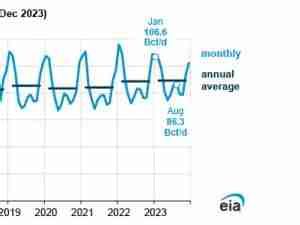U.S. FERC to investigate rates at four natural gas pipelines
By: Reuters | Jan 21 2016 at 01:13 PM
U.S. federal energy regulators said on Thursday they will investigate rates charged by four interstate natural gas pipelines to determine if the companies are substantially over-recovering costs, resulting in unjust and unreasonable rates.
The U.S. Federal Energy Regulatory Commission said in a statement it will investigate the rates of Tuscarora Gas Transmission Co, Empire Pipeline Inc, Iroquois Gas Transmission System LP and Columbia Gulf Transmission LLC.
Officials at Columbia Pipeline Group Inc of Houston, the owner of Columbia Gulf, and TransCanada Corp of Calgary, the owner of Tuscarora Gas, said they were still reviewing the order but were prepared to fully cooperate with FERC and provide any information requested.
James Yardley of Columbia Pipeline also said in an email the company believes its existing rates are reasonable based on a recent rate case in 2011, particularly in light of changing market conditions.
Officials at the other companies were not immediately available for comment.
FERC said it reviewed the cost and revenue information provided by the companies in their filings for 2013 and 2014.
Based on this review, the Commission said it became concerned that each pipeline company is collecting revenue substantially in excess of the pipeline’s actual cost of service, including a reasonable return on equity.
FERC directed each pipeline to file a cost and revenue study within 75 days of the issuance date of that pipeline’s order. The Commission also said it set each case for evidentiary hearings before a FERC administrative law judge.
The 229-mile (369-kilometer) Tuscarora system runs from Oregon to California and Nevada.
The Empire Pipeline runs 249 miles in New York from the border of Ontario. It is owned by National Fuel Gas Co of Williamsville, New York.
The Iroquois Gas Transmission system extends 416 miles through New York and Connecticut from the Ontario border to Long Island, New York. It is owned by several companies, including TransCanada and Dominion Resources Inc of Richmond, Virginia.
Columbia Gulf Transmission consists of about 3,400 miles of pipeline located primarily in Louisiana, Mississippi, Tennessee and Kentucky.
U.S. natural gas prices at the Henry Hub benchmark in Louisiana last year fell to their lowest levels since 1999 as both production and inventories hit all-time highs while heating demand remained light in November and December due to the warming effect of the El Nino weather pattern.






